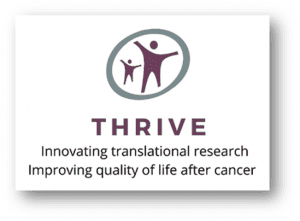Join the Newest HESI Committee, TEA:
Transforming the Evaluation of Agrochemicals (Previously ACSA 2.0)

It’s TEA time! In January 2021, HESI will launch the second edition of the Agricultural Chemical Safety Assessment (ACSA) Committee. The original ACSA project successfully promoted the use of a tiered approach to identify critical information for robust risk assessments, while eliminating the need for unnecessary data generation (Carmichael et al., 2008). Subsequently, by fostering the application of an increased knowledge of toxicokinetics, mechanistic toxicology, and new approach methods, the committee contributed to the modernization of assessment guidelines (e.g., elimination of the one-year dog study) and to the integration of more relevant hazard characterization approaches. Overall, the activities of this committee resulted in more efficient human health risk assessments, some decrease in animal use, and generally, more effective use of resources to inform human health risk assessment.
The original ACSA project focused only on human health concerns and the ability to assess risks by streamlining various regulatory test guidelines. In the intervening years, science has advanced at a remarkable pace, and the ability to implement the most modern tools in assessing the safe uses and risks of crop protection chemicals has dramatically increased. This new committee will consider how to incorporate the advancements that have occurred, including the outputs from the many relevant HESI projects, to better inform human health and environmental risk assessment decisions for agrochemicals.
The goal is not to tweak around the edges of the current evaluation and regulatory frameworks, but rather to set a paradigm shift in motion by understanding current regulatory and safety assessment needs from a global perspective and harnessing state-of-the-art science to inform risk assessment decisions that influence the human health and environmental impact of crop-protection chemicals. The outcome will be a cross-disciplinary framework relevant to stakeholders around the globe that will maximize the quality, consistency, and relevance of risk-based decision making.
As with all HESI projects, the success of this initiative will depend on engaging thought leaders and international stakeholders, from government regulators to agrochemical industry experts, academics, and representatives from other organizations such as the animal welfare community.
If you would you like to help us make a positive change in the way agricultural chemicals are currently being assessed, this committee is for you! For more information or to join the committee, please contact Dr. Sandrine Deglin (sdeglin@hesiglobal.org).
THRIVE Letters of Intent: Submission Now Open!

HESI THRIVE is a seed grant program that is innovating translational research and improving quality of life after cancer. By providing researchers with both seed funding and access to critical networks, THRIVE enhances the visibility of the patient need, the value of the research, and the reasons that larger funding entities might elect to incorporate these research streams into future funding priorities.
THRIVE provides seed grants for clinical and translational research and technology-based solutions that enhance our ability to predict when and how adverse effects may occur in patients who have received cancer treatment. The THRIVE grant program is designed to provide seed funding to investigators for the testing of initial hypotheses and collecting of preliminary data to help secure long-term funding by the National Institutes of Health and/or other major institutions. For details on eligibility, funding, the application process, and key deadlines, please click here.
The letters of intent deadline is 31 December 2020. For more information, contact research@hesithrive.org.
Emerging Issues 2021 Call for Proposals
![]()
HESI is seeking your suggestions for new scientific projects (human or environmental health) for consideration as an emerging issue in 2021. Proposals will be reviewed in early 2021, and one or more may be selected to form a new scientific collaborative program within HESI. Although this is not a grant, the selected program will receive support from HESI for scientific program design, coordination, and staffing.
Learn more about the HESI Emerging Issues Process on our website or download the proposal form here. The deadline to submit proposals is 15 January 2021. Don’t miss out!
PBPK Symposium: Opportunities and Challenges in Using the Kinetically Derived Maximum Dose Concept to Refine Risk Assessment

The HESI PBPK Committee co-hosted a symposium webinar with NICETAM and the US EPA Office of Pesticide Programs on “Use of the Kinetically Derived Maximum Dose in Toxicity Testing” on 30 September 2020. The symposium was attended by over 450 multi-sector participants from 22 different countries. The presentations were aimed at addressing two main issues:
- (1) Toxicology studies that utilize KMD are often submitted for the purpose of interpreting dose-response data from repeated dose animal studies to assess the human health risks of occupational and environmental chemical exposures. However, there is no agreed-upon scientific guidance that clearly specifies what data are necessary and sufficient, in a fit-for-purpose context, to evaluate such studies; and
- (2) There are no specific criteria on how to incorporate/integrate all available data streams, including, but not limited to, toxicokinetic and exposure information to use the KMD approach as an option for top-dose selection in repeated dose animal studies for occupational and environmental chemical exposures.
The symposium recording and slides will be available in the coming weeks, and follow-up work and discussions will occur within the HESI PBPK Committee. For more information or to join this effort, please contact Dr. Michelle Embry (membry@hesiglobal.org).
eSTAR Committee and AAPS Webinar Series

The HESI eSTAR Committee has co-organized a webinar series with the American Association of Pharmaceutical Scientists (AAPS). These webinars are free and open to the public, so please feel free to share the links! Special thanks to Dr. Shraddha Thakkur (US FDA) for helping to build this connection and the AAPS staff for providing the webinar hosting.
Webinar: 8 October 2020 at 12:30 PM EST
Aligning Regulatory Agencies and the Pharmaceutical Industry Toward Reducing Toxicity Associated Drug Development Costs, Timelines, and Attrition: Two Year Rodent Carcinogenicity Testing
Dr. Frank Sistare (Merck)
Register here
Webinar: 15 October 2020 at 12:30 PM EST
Development and Regulatory Approval for Toxicogenomics (TGX) Biomarker to Detect DNA Damage-Inducing Agents
Dr. Carole Yauk (University of Ottawa)
Register here
For more information, please contact Dr. Syril Pettit (spettit@hesiglobal.org).
CiPA and ICH Cardiac Safety Webinar

The HESI Cardiac Safety Committee has been integral in the CiPA Initiative, which has progressed to review under the International Council for Harmonisation (ICH) E14/S7B Implementation Working Group. The Implementation Working Group will present a webinar on the “Clinical and Nonclinical Evaluation of QT/QTc Interval Prolongation and Proarrhythmic Potential” on 15-16 October 2020. This working group developed new Questions & Answers (Q&As) to ICH E14 and S7B, which were released by ICH as a draft guideline for public consultation in August 2020.
Learn more and register here. Contact Jennifer Pierson (jpierson@hesiglobal.org) for more information on the HESI Cardiac Safety Committee.
Register Now! PATB Committee Protein Toxins Workshop

The HESI Protein Allergens, Toxins, and Bioinformatics (PATB) Committee is co-hosting a virtual workshop in collaboration with the Society of Toxicology (SOT) Food Safety Specialty Section titled “From Protein Toxins to Applied Toxicological Testing” in the context of safety assessment of novel foods and feeds. The virtual workshop will take place on 21–22 October 2020 from 9:00 AM to 1:00 PM EST each day and is open to all interested participants. It will cover the state of the science in protein toxins biology (structure, activity, MOA, etc.) and discuss current bioinformatics approaches used to identify and characterize protein toxins, with the ultimate goal to leverage computational biology and in silico approaches for determining the potential of a protein to present toxic properties.
The Protein Toxins Workshop will serve the dual purpose of learning about the advances in protein toxin research presented by recognized international academic experts in the field and assessing the translation of knowledge to practical applications (e.g., into weight-of-evidence approaches for the safety assessment of biotechnology products; relevance, applicability, and limitations of existing protein toxin databases and tools for risk assessment). The desired outcome of this event is to help inform the development of contemporary and scientifically robust approaches for the identification and classification of potential toxicity risk in novel proteins.
For more information, please visit the event page or contact Dr. Lucilia Mouriès (lmouries@hesiglobal.org).
From the Leadership
For this issue of Insights, I will highlight our plans for the HESI strategic plan and the Scientific Foresight document. Before I do, I want to thank Drs. Ruth Roberts (ApconiX) and Anthony Holmes (NC3Rs) who agreed to co-chair the Program Strategy and Stewardship Committee (PSSC), welcome two new HESI staff, Raechel Puglisi and Dr. E’Lissa Flores, and thank Dr. Stuart Cagen (Shell) for his many years of Board service and wish him a wonderful retirement.
In the July issue of Insights, I noted that we were planning to refresh our strategic plan. As the Executive Committee reviewed the current HESI strategy, we agreed that the key strategy elements and objectives were still appropriate but that the tactics should be refreshed. Therefore, we will roll over the key elements of the strategic plan for the next 5-year time frame. This discussion led to a review of the current 3-year horizon of the Scientific Foresight document. In discussions with the Emerging Issues Committee (EIC), we agreed that refreshing the Scientific Foresight document focusing on a 5-year horizon will be a valuable exercise that could guide both the EIC and identify tactics for the HESI strategic plan. The PSSC agreed to lead the revision of the Scientific Foresight document, working in partnership with the EIC. Stay tuned, as a subteam is being formed for this activity!
As the leaves begin to fall and we are treated to this splash of color, we need to remain vigilant as the second wave of COVID-19 will challenge our resolve. Please continue to wear masks, practice social distancing, and wash hands while we wait for 33 vaccines in Phase II/III clinical trials and 22 therapeutics being assessed to combat COVID-19. I firmly believe “Science Will Win” and hope we will begin to return to normal in mid-2021.
Thank you for your contributions to advancing HESI’s mission during this challenging time.

Jon C. Cook, PhD, ABT, DABT
HESI President